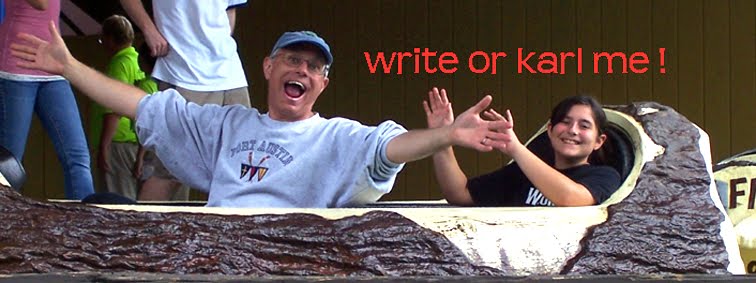 Here is a great way to spend the next 30 minutes: Write a summary of your life. Why? Should something happen to you, it would be the greatest gift you could give to those who may need to care for you, or your estate, if you can no longer do it yourself. Let me explain.
Here is a great way to spend the next 30 minutes: Write a summary of your life. Why? Should something happen to you, it would be the greatest gift you could give to those who may need to care for you, or your estate, if you can no longer do it yourself. Let me explain.When someone dies or becomes infirm, difficult tasks face those who survive. This initial period of discovery can be time consuming and quite frustrating when no clues are left. A case in point: A distant relative passes away. They live far away in another state. Where do you begin?
Finding recent tax filings can be a wonderful place to start. The past few years' IRS 1040 forms will, at least, get the ball rolling with discovery. What happens if your relative has been on fixed income and has not needed to file tax returns? The search can be long and hard.
Monitoring the mail and incoming phone calls can yield some clues. Speaking to friends and neighbors can help too. Eventually, anyone who wants money comes looking for it! Without proper records or clues, some items may never be found.
Your list can help considerably. Simply take a piece of paper and write down all your assets. What bank accounts and investments do you have? Do you hold any real estate? What credit cards do you hold? Do you have more than one mortgage? If you have a safety deposit box, where is it and where are the keys? Who is your tax accountant? Who is your lawyer?
Where are your bank accounts held? Who are your doctors?
Documents are essential and should be held in one obvious central place. Make sure your collection includes birth and death certificates, marriage certificates, discharge papers from the armed forces, automobile titles, insurance cards and registrations, Social Security and Medicare cards, life insurance contracts and your instructions for funeral wishes. Most important: A will and a health surrogate assignment document! Make a habit of reviewing your will once a year. An out-of-date will can be a nightmare in itself.
Another wonderful gift to your family is funeral insurance as an irrevocable trust. These policies cover the expenses of the funeral of your choice eliminating a large burden for everyone who survives you. By making the policy an irrevocable trust, the money spent on this insurance becomes an exempt asset in the eyes of Medicaid. Since these policies accrue interest, their initial worth grows as time goes by.
Take a lesson from Mahatma Ghandi: Die with no more possessions than your glasses! If you slowly transfer the ownership of all you hold in this world, while you are alive, many fewer questions will arise. This is another way to have a better relationship with Medicaid. If you have little or no assets, you will qualify for this kind of insurance more readily. Get to know what insurance vehicles may be able to sustain you if you are infirm. Learn the difference between Medicare and Medicaid. Get to know all about Medicare Part A, B and D. Don’t transfer your assets in a hurry. Consult your tax accountant and lawyer for advice. There are strict rules concerning how to disperse your assets gracefully. Abide by them!
Also, think about establishing a joint bank account with someone close to you. This will give them instant access to funds should problems arise. Consider this article as a starting point and inspiration for action. There are many more items to address that may be particular to your life. Plan now and live all the days of your life in peace (and bring peace to others!) Amen.

No comments:
Post a Comment